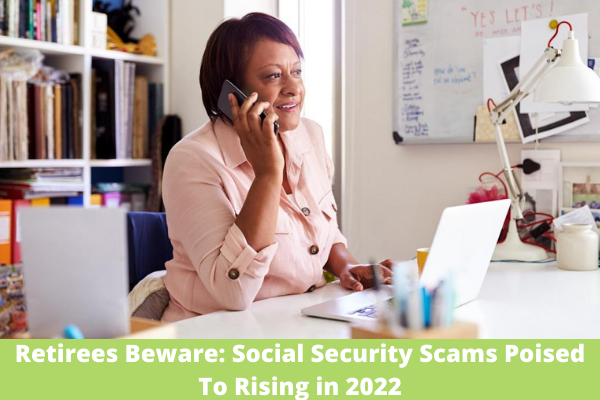In the year 2021, online frauds were aplenty. Fraud dating apps, cryptocurrency and financial theft, data leaks, and Google ad fraud are all examples of crimes that you or someone you know may have fallen victim to. In 2022, several analysts predict that the number of Social Security fraud cases will increase.
In a recent study, the FBI said that it gets more than 800,000 cybercrime complaints every year, resulting in an estimated $4 billion in damages.
As a result, it’s critical to be on the lookout for impostors who will claim to be from the Internal Revenue Service (IRS), the Social Security Administration (SSA), lottery promoters, utility providers, banks, and credit card firms, or even a friend or family in crisis.
According to the Rockford Register, their payment options will be non-traceable and will include money transfer services, Bitcoin transactions, gift cards, and cash, among other things.
Luckily, the Federal Trade Commission (FTC) and the Social Security Administration (SSA) give consumer protection guidelines.
First and foremost, the Federal Trade Commission warns individuals on its website that the Social Security Administration would never call to ask you to pay anything or endanger your benefits.
The Social Security Administration’s legitimate phone number may appear on your caller ID, but it is not the real SSA phoning. Computers make it simple to display any phone number as the caller ID. According to the Social Security Administration, “you can’t believe anything you see there.”
It also advises against giving out your Social Security number to anybody who approaches you, even if it is only the last four digits of your number. Also counter-productive, giving up your bank account or credit card information to anybody who calls you is never a good idea under any circumstances.
It’s important to remember that anybody who asks you to transfer money, pay with a gift card, or send cash is a scam artist. Always. It is true regardless of who they claim to be,” the statement states.
On top of that, the Social Security Administration advises consumers on its website that “if there is an issue, we will send you a letter.” In most cases, we will only contact you if you have requested a call or if you have an ongoing commercial relationship with us.”
According to the website, the current scam technique of employing robocalls or live callers has gained popularity.
The Social Security Administration warns that fraudsters may threaten arrest or other legal action, or they may make promises to raise benefits, preserve assets, or fix identity theft problems.
They often demand payment in-store gift cards, wire transfers, pre-paid debit cards, online currencies, or postal money orders, among other methods.
Also read: Retailers surrender to exceptional prices on online returns
In addition, the statement states that “our personnel will never threaten you for information or offer a reward in return for personal information or money.”
For the record, the Social Security Administration (SSA) will never suspend Social Security numbers (SSNs), demand immediate payment, or require cash payment, gift card, pre-paid debit card, web currency, or bank transfer; nor will it ever ask for personal information or banking information to provide you with a cost-of-living adjustment (COLA).
Please keep checking our website for more news!

